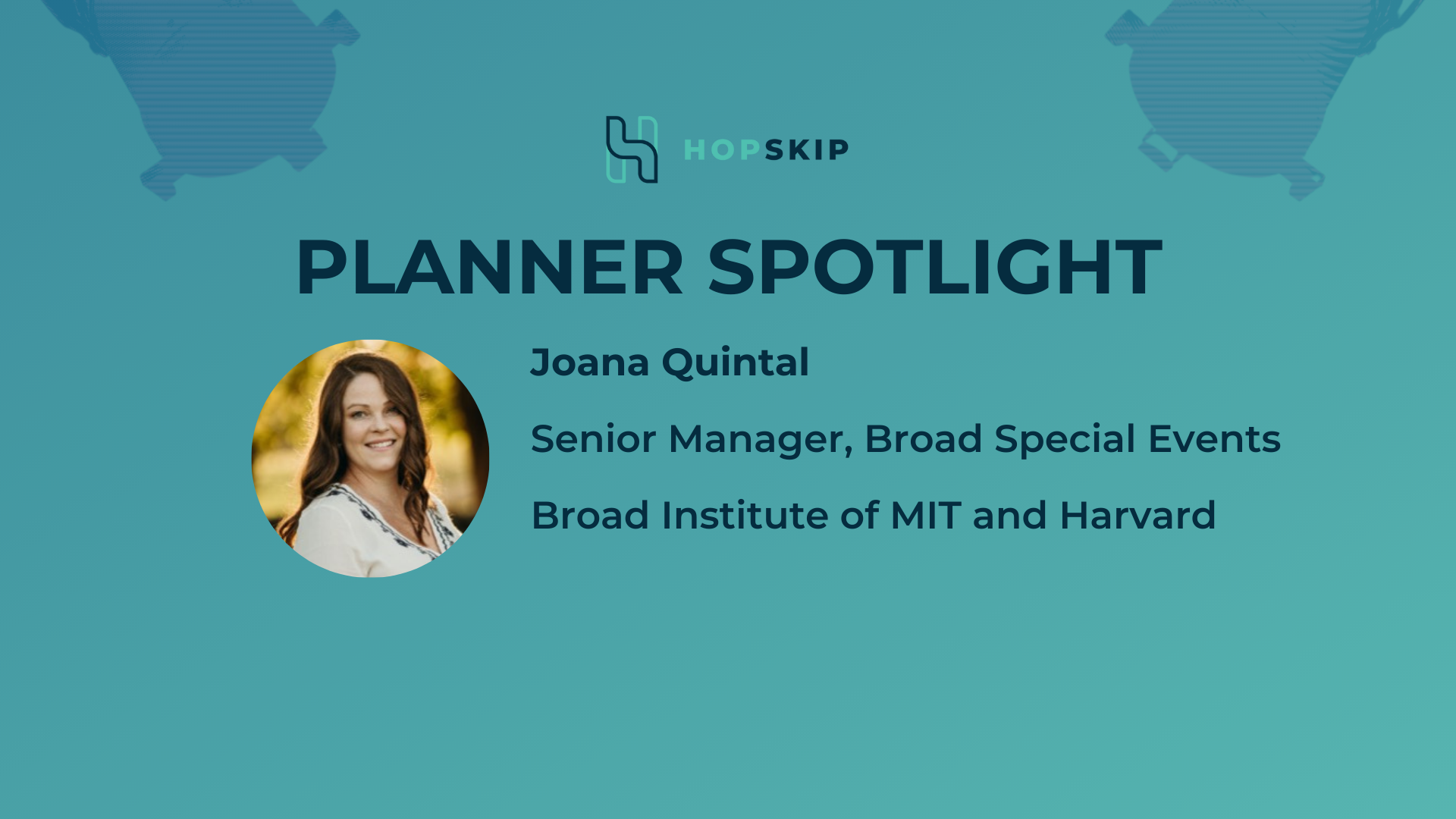This post is part of the HopSkip Planner Spotlight Series where HopSkip spotlight's planners across the industry to bring awareness of how they adapted to COVID-19, communicating and lessons learned and sharing how they are viewing the meetings and events industry in a post-pandemic world.
Name: Joana Quintal
Company Name: The Broad Institute of MIT and Harvard
Job Title: Senior Manager, Broad Special Events
Years of Experience: 8+
How were you able to adapt during COVID-19 when the meeting and events industry got disrupted?
The Broad is a unique place for an event planner, in that we mostly coordinate internal-facing events or invite-only, so initially (from March through May 2020) we canceled many events, figuring we’d reschedule for later in the year or restart an annual event the following year. However, as it became more apparent we weren’t returning to the office anytime soon, we started to explore ways to still engage with our community from town halls via Zoom webinar (collecting questions ahead of time and addressing through live Q&A); to creating a portfolio of community engagement virtual events throughout the summer to keep our spontaneous social interactions happening; to exploring virtual event platforms to support symposiums, lectures, and our annual retreat. Our annual company-wide retreat — typically a two-day, fully in-person event with upwards of 30 main stage talks, over 15 breakouts, 250 posters, and social activities — was converted to a four-day, fully virtual event. In previous years we had not offered any sort of live streaming because we wanted everyone to physically come together in the venue. To add even more complication to our event plans, at the same time our team was learning new technology and how to adapt, myself and another teammate were starting maternity leave. Needless to say, my team stepped up, learned new software, managed all the logistics and put on an amazing event that reached over 3,000 of our employees and partners.
As a planner, what was the number one thing you learned over the past year?
That you can still foster collaboration and conversation at fully virtual events. We’ve taught ourselves new tools and technology platforms that truly helped us maintain the integrity of the event while expanding audiences locally and abroad to make events even more accessible.
Is there anything you are changing in your planning process moving forward as a result of the pandemic?
Moving forward, I’ll always be thinking about hybrid capabilities and the extent to which an event needs to be “hybrid equal”. There will always be employees or partner members working remotely and managing work/life balance. For an event like our annual retreat, for example, we saw an uptick in attendance because no one had to commute, arrange child or elder care for after hours, or rearrange meeting schedules to attend. Our public lecture series, Science For All Seasons, saw a live audience from countries across the globe. It was exciting to watch the chat box go off with “Hi from Germany”, “Hi from Turkey”, etc., when, previously, we’d have only had around 250 Boston-area people attend live in our auditorium. Now we are connecting with thousands of attendees worldwide.
This post is part of the HopSkip Planner Spotlight Series where HopSkip spotlight's planners across the industry to bring awareness of how they adapted to COVID-19, communicating and lessons learned and sharing how they are viewing the meetings and events industry in a post-pandemic world.
